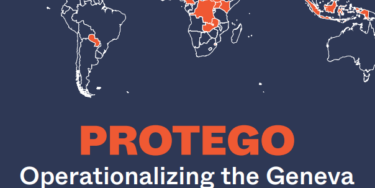In 2009 the International Commission of Jurists began to gather together national court decisions that addressed questions concerning sexual orientation and gender identity. It did so because it had become evident that battles over some of the most controversial issues of the day were being waged in domestic courts. A small number of cases can be brought before international human rights bodies – such as the regional human rights commissions and courts and UN treaty bodies – but increasingly international human rights arguments were being heard at the domestic level.
The fourteen chapters are organised by topic. Each chapter begins with a general introduction to that particular field of law, followed by case summaries. The latter set forth the legal issue and the relevant domestic, comparative and international law, and then summarise the arguments, reasoning, and result.
Altogether, the Casebook consists of 108 cases, from 41 countries across a variety of regions, covering a span of more than forty years. The vast majority of decisions, nevertheless, date from the past decade. The pace of change is clearly accelerating.
Purpose
The Casebook has two purposes. First, it should help lawyers, judges, and human rights activists better understand how to use the law to protect individual rights. The ICJ hopes that readers of the Casebook will be encouraged to raise arguments that are grounded in international and comparative law in their domestic courts and that courts will find the experiences of other courts relevant. The ICJ further hopes that the Casebook will promote public interest litigation in defence of rights, assist individuals whose rights have been violated to seek redress in court, and enable lawyers to develop effective and persuasive reasoning.
Second, the ICJ hopes that the Casebook will stand as evidence for the claim that law on sexual orientation and gender identity is global in nature. A court in New Delhi is referring not only to the decisions of courts in Strasbourg or Washington. It is also, and perhaps especially, paying attention to precedents established in South Africa, Hong Kong and elsewhere. People everywhere want their relationships – with their partners, with their children – to receive legal recognition and protection.



